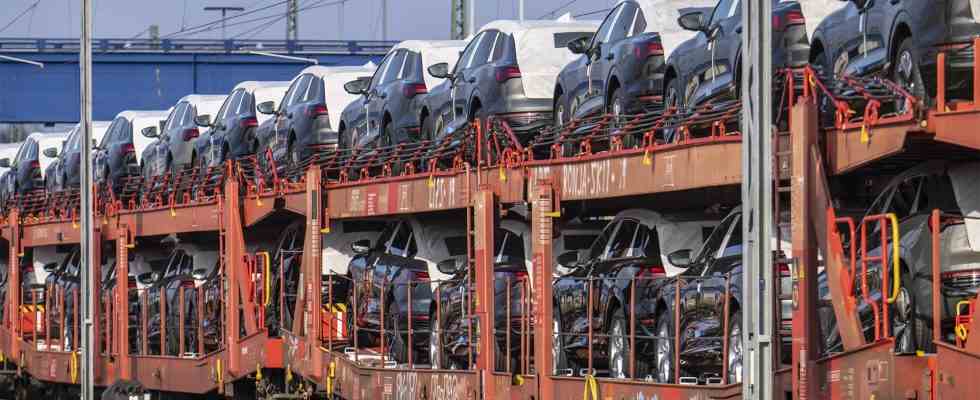Status: 03/21/2023 10:54 am
Europe’s automakers have again sold significantly more new cars than a year ago. At that time, sales had collapsed due to the chip crisis. Electric and hybrid cars are still in demand.
The car market in Europe is recovering from the supply chain problems. In February, the number of newly registered private vehicles rose by 11.5 percent to 802,763 vehicles compared to the weak prior-year period, as the European industry association ACEA announced today in Brussels.
The reason was the high order backlog, which had accumulated last year due to the lack of chips and unstable supply chains and is now being gradually reduced. On the other hand, new orders are coming in only sparsely, as customers are reluctant to make larger purchases due to fears of a recession.
Almost 1.6 million new cars have been brought onto the roads since the beginning of 2023, which corresponds to an increase of 11.4 percent. However, the shortage of semiconductors at the beginning of 2022 had a severe impact on car sales, so that the comparative values are correspondingly low.
Electric cars in high demand
In the four most important markets of the EU, the association recorded more new registrations in February, especially in Spain with 19.2 percent, Italy with 17.4 percent and France with 9.4 percent. In Germany, car manufacturers sold 2.8 percent more cars.
At more than a third, petrol engines represent the largest proportion of newly registered vehicles in the EU. The market share of diesel vehicles, on the other hand, fell by 3.2 percentage points to 15 percent. Electric cars were particularly in demand: their registrations rose by almost 40 percent. The market share climbed to 12.1 percent compared to 9.7 percent in the previous year. “The demand for electric cars is still greater than the supply, with state subsidies playing a major role,” explained car expert Peter Fuss from the management consultancy EY.
Hybrid vehicles, which combine an electric drive with a combustion engine, now make up a good quarter of all cars, while demand for plug-in hybrids fell due to the abolition of state subsidies in Germany.

